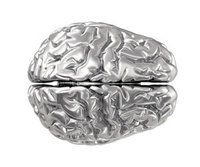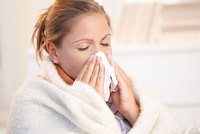Health

Why safety at heights must remain a top priority for employers
According to the U.K.’s Health and Safety Executive (HSE), working at heights is still one of the biggest causes of major injuries and death for workers in Great Britain.

Child obesity risk increases almost three-fold in five generations
Children born since 1990 are up to three times more likely than older generations to be overweight or obese by age 10 according to a new study.

Paracetamol in pregnancy may lower testosterone in unborn boys
Prolonged paracetamol use by pregnant women may reduce testosterone production in unborn baby boys, research has found.
Hazards in the workplace and how to avoid them
The workplace can be a pretty hazardous place to be. The Health and Safety Executive says that accident rates have fallen over the years as we become more safety conscious but its most recent statistics still show about 629,000 people had an accident at work in 2013/14.

New screening technique could pick up twice as many women with ovarian cancer
A new screening method can detect twice as many women with ovarian cancer as conventional strategies, according to the latest results from the largest trial of its kind.
A Beginner’s Guide to Vaser Lipo Surgery
The very mention of liposuction is usually enough to bring to mind rather brutal images of harsh surgical procedures, which although effective have long been less-than ideal for a multitude of reasons.
Tips on coping with tinnitus
For many people, the onset of tinnitus can really have a debilitating impact on their lives. Although there is no established cure for tinnitus, as its causes can be so varying, there are ways to make it easier to cope with.

New images of the brain show the forgetful side effect of frequent recall
A study by the MRC (Medical Research Council) Cognition and Brain Sciences unit in Cambridge has shown how intentional recall is beyond a simple reawakening of a memory; and actually leads us to forget other competing experiences that interfere with retrieval.

Babies with more frequent eye movements are more likely to develop ASD
Researchers funded by the Medical Research Council (MRC) have found that babies who move their eyes more often than their peers at the age of six months are more likely to meet criteria for Autism Spectrum Disorder (ASD) as children.

BMA House gets hearts & meetings pumping for wear Red Day
The BMA House event’s team will be spreading the love in support of National Heart Month this February encouraging ‘fitter meetings & conferences’ at the central London medical venue.

Experts help to bust the myths on cold and flu home remedies
We all have a faithful home remedy or two that we believe can help soothe cold and flu symptoms when we are feeling under the weather.

Study reveals new challenges faced by MS patients
Multiple Sclerosis (MS) patients are less able to regulate their emotions and have a poorer quality of life than people who don't have the disease, according to research carried out at the University of Aberdeen.

New genetics study identifies possible target for epilepsy treatment
A single gene that coordinates a network of about 400 genes involved in epilepsy could be a target for new treatments, according to research.

‘Social jetlag’ associated with obesity-related disease
A new study has discovered an association between social jetlag, obesity and obesity-related disease including metabolic disorder, inflammation and diabetes.
European boost to dementia research
People at risk of dementia will benefit from a £50 million initiative to improve drugs that could prevent the condition.
